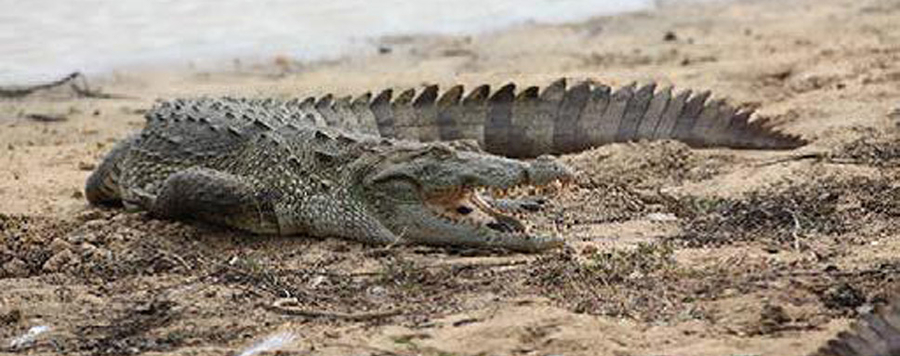
Conservation Status of the Mugger (Crocodylus palustris): Establishing a Task Force for a Poster Species of Climate Change
The Mugger or Marsh crocodile (Crocodylus palustris) was described from the Gangetic Plains in India in 1831. It is a medium-sized crocodile, with adult females reaching 2-2.5 m and males 3-3.5 m on average, and rarely reaching 5 m TL. The species is distributed from southeastern Iran to Pakistan and the Indian subcontinent, including Sri Lanka. The species is considered extinct in Bhutan and Myanmar, with only transient individuals occasionally reported from Bangladesh. Fossilized remains suggest the species’ existence in Pakistan for thousands of years. Muggers inhabit freshwater habitats, including lakes, rivers, marshes, agro-wells and artificial ponds (“tanks” in Sri Lanka, and species is referred to there as ‘tank crocodile’), and occasionally hypersaline waters in Sri Lanka.






